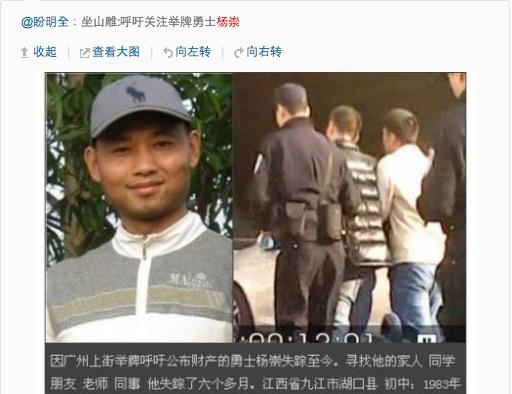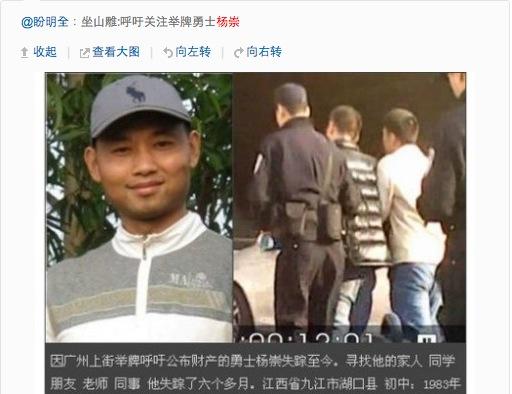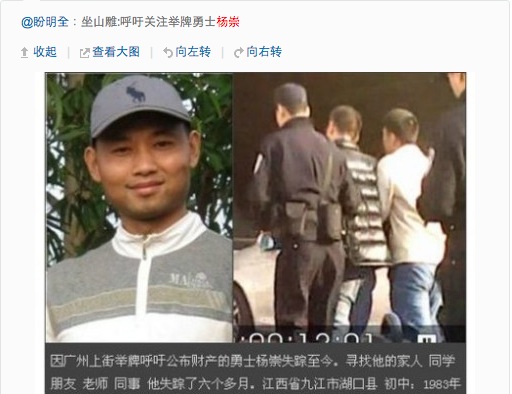Contrary to new Communist Party leader Xi Jinping’s anti-corruption campaign talk, several people have been sentenced to prison and re-education through labor after they called on officials to disclose their personal assets earlier this year.
On April 1, Chinese netizen Yang Chong led about a dozen people during a demonstration in Guangzhou, the capital of Guangdong Province. They demanded political reform, and called on Chinese leaders to disclose their personal assets, urging then-Party leader Hu Jintao to take the lead.
Yang was sentenced to one year in prison by the People’s Court of Hukou County in Jiujiang City, Jiangxi Province. Others, including Xiao Yong, Huang Wenxun, and Ou Ronggui, were sentenced to various terms.
According to a Radio Free Asia (RFA) report, Yang is filing an appeal. His attorney Wang Jun was finally able to meet with Yang after several unsuccessful attempts.
Tang Jingling, a lawyer in Guangzhou City, told RFA that the authorities should release Yang and the other protesters.
“All of the netizens who held banners at the demonstration site were sentenced to jail. Even those who stood by, watching, were detained for a period of time before being released,” Tang said.
Tang added that the petition of political reform and property disclosure filed by these men in Guangzhou City did not violate any Chinese laws, so the authorities came up with other charges to prosecute them. Yang was accused of “illegal deforestation,” and Xiao Yong was sentenced to 18 months re-education through labor, also on some other, unrelated charge.
Democracy advocate Sun Wenguang, a retired professor from Shandong University, told RFA it sounds absurd that the communist regime would retaliate by sentencing dissidents like Yang on charges of “illegal deforestation.” But this is the reality in China nowadays, he said. Local Chinese governments frequently resort to re-education through labor or arbitrary sentences to deprive dissidents of their right to free speech.
Read the original Chinese article.
The Epoch Times publishes in 35 countries and in 20 languages. Subscribe to our e-newsletter.






